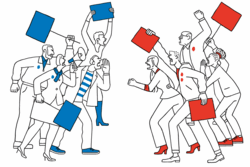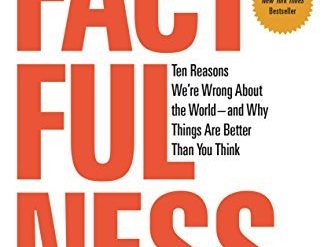
Robert B. Reich examines the American body politic with a critical eye in his new book, The Common Good, and finds it dangerously diseased. The former Secretary of Labor, now a professor of public policy at the University of California, Berkeley, laments the loss of a commitment to public morality that for decades enabled Democrats and Republicans to unite in common purpose for the good of the country. What ails American society, he insists, is the absence of the shared values that drew so many millions of immigrants to our shores—the “ideas about what we owe one another.”
Estimated reading time: 4 minutes
What ails American society
“I think,” writes Reich, that “what we have lost is a sense of our connectedness to each other and to our ideals—the America that John F. Kennedy asked that we contribute to. Starting in the late 1970s, Americans began talking less about the common good and more about self-aggrandizement. The shift is the hallmark of our era: from the ‘Greatest Generation’ to the ‘Me Generation,’ from ‘we’re all in it together’ to ‘you’re on your own.'” Sad as it is, this analysis helps put in perspective the events of the past fifty years that set the stage for Donald Trump’s election. “Trump is not the cause” of all this, Reich insists. “He is a consequence—the logical outcome of what has unfolded over many years.”
The Common Good by Robert B. Reich (2018) 208 pages ★★★★☆
A litany of errors
Although Reich is a professed liberal, and far from shy about it, his analysis is by no means one-sided. In the litany of wrong turns US society has taken over the past half-century, he includes a number of those that must be laid at the feet of the Democratic Party. Liberals like so many of us in Berkeley are quick to single out the sins of the Reagan, George W. Bush, and Donald Trump Administrations. We too infrequently cite those steps taken by Bill Clinton and Barack Obama, but Reich does not. Of course, Watergate, Iran-Contra, and the invasion of Iraq appear on his list. But so do the Gulf of Tonkin Resolution, Robert Bork’s rejection, the repeal of Glass-Steagall, and the failure to prosecute the bankers responsible for the Great Recession.
The blame extends far beyond Washington
However, Reich doesn’t limit himself to condemning the sins of politicians. His list of the events that explain why Americans now place little trust in institutions includes just as prominently the actions of media, business, and financial leaders. The standouts among them are the 1971 Lewis Powell memo that ignited Big Business’ war against the liberal consensus, the Savings & Loan scandal, the Arthur Andersen scandal, Goldman Sachs’ double-dealing with derivatives, Bernie Madoff’s Ponzi scheme, and over-the-top misbehavior by Travis Kalanick and Martin Shkreli. (I would have added the advent of Fox News and right-wing talk radio to this list.) Viewing all these events in a single list that goes on, page after page, is an uncomfortable reminder of just how far we’ve traveled from a commitment to the common good.
Can this drift toward division and distrust be reversed?
Reich’s diagnosis is irrefutable. The ills of American society are there for all to see. But his prognosis is sadly overoptimistic. In The Common Good, he uses the word “must” 68 times, “should” 71 times, and “need” in the sense of “need to” two dozen times. Reich concedes that the changes he advocates might require half a century or more. However, I wonder when that half-century might start. I see no signs on the horizon that the last half-century of steady drift toward inequality and division will be addressed in any meaningful way.
Even if Democrats retake both houses of Congress in 2018 . . . even if Donald Trump is compelled to answer for his crimes and is forced out of office before his term ends . . . even if Democrats also retake the White House in 2020 . . . can Professor Reich, or anyone else for that matter, seriously contend that a deeply divided Democratic Party will come together around the radical reforms essential to begin moving the pendulum in a decisively different direction?
For related reading
Not long ago I reviewed an earlier book by Robert Reich, Saving Capitalism: For the Many, Not the Few. My review is at How to make capitalism work for the middle class. I’ve also reviewed his later book, The System: Who Rigged It, How We Fix It, at Robert Reich explains how the ultra-wealthy have rigged the system.
Like to read books about politics and current affairs? Check out Top 10 nonfiction books about politics.
This is one of the many Good books by Berkeley authors.
And you can always find my most popular reviews, and the most recent ones, on the Home Page.



























